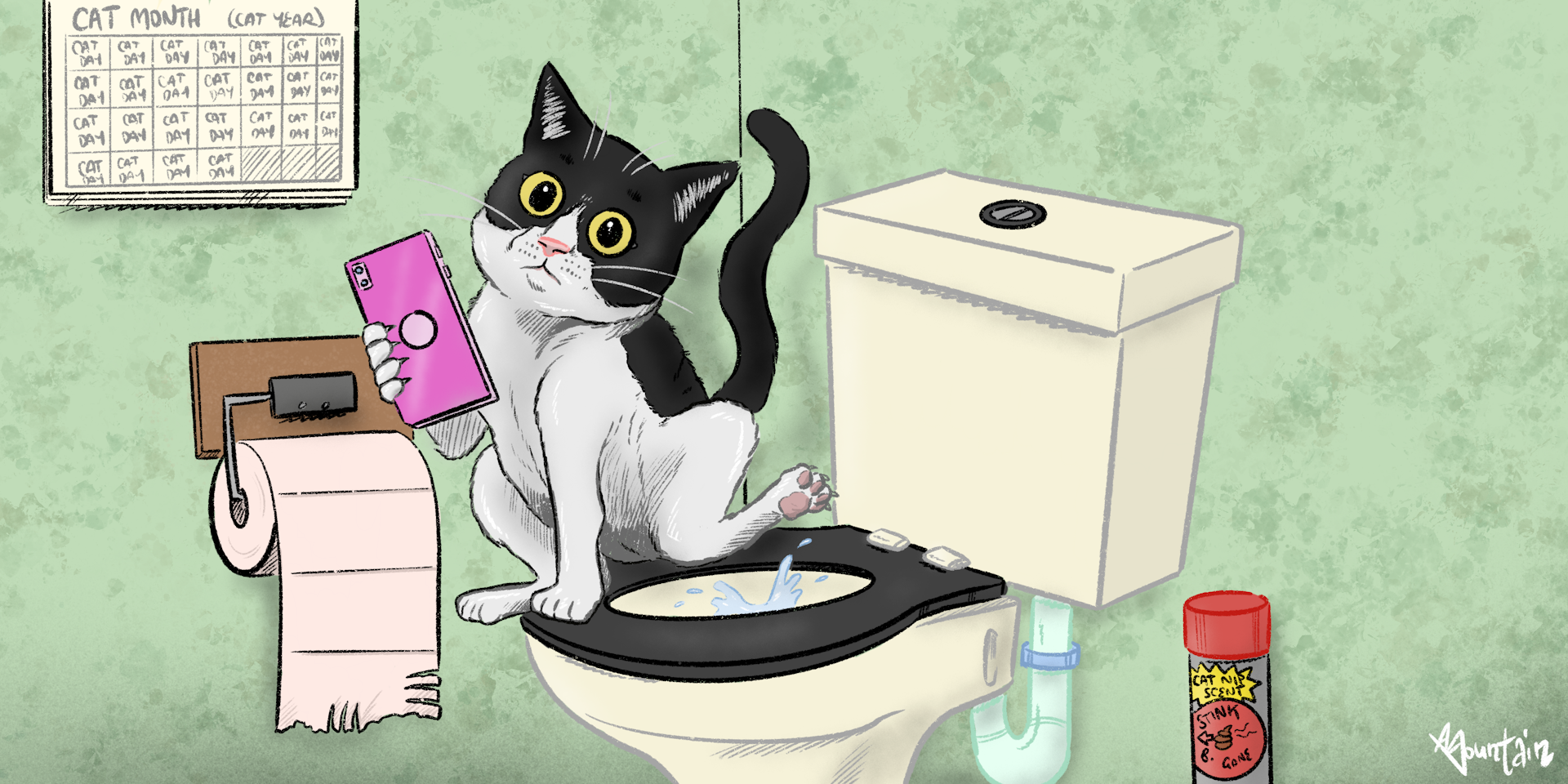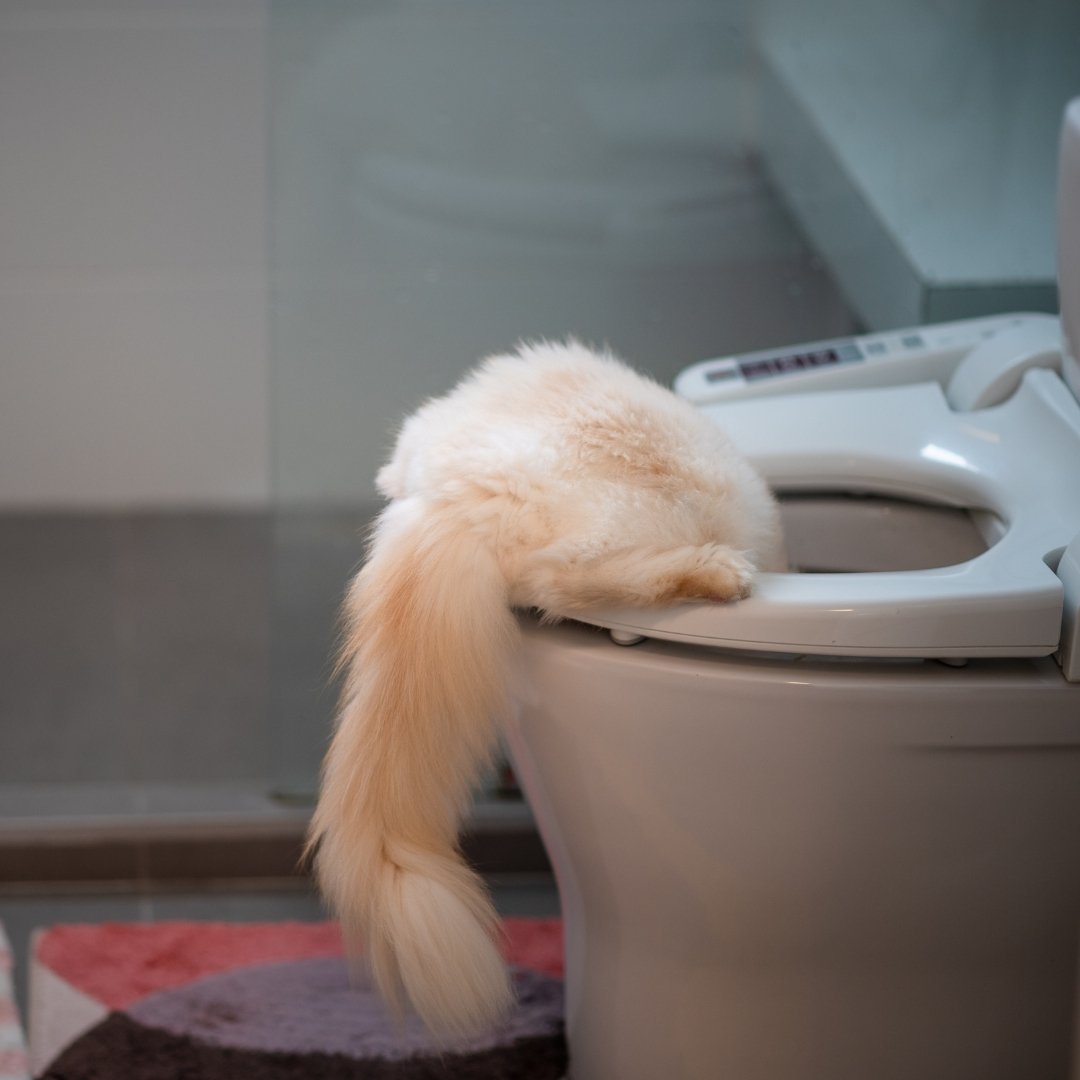Prevent Toilet Disasters: Don't Flush Cat Poop Down Your Toilet - Expert Advice
Prevent Toilet Disasters: Don't Flush Cat Poop Down Your Toilet - Expert Advice
Blog Article
Right here down the page you can locate some good quality information and facts with regards to Don’t flush cat feces down the toilet.

Intro
As feline proprietors, it's essential to bear in mind just how we take care of our feline good friends' waste. While it might seem convenient to flush feline poop down the bathroom, this method can have detrimental consequences for both the environment and human health.
Environmental Impact
Flushing pet cat poop introduces dangerous pathogens and bloodsuckers into the water, posing a substantial threat to marine ecological communities. These impurities can negatively impact marine life and concession water top quality.
Health and wellness Risks
In addition to ecological concerns, flushing feline waste can likewise posture health and wellness threats to people. Pet cat feces might have Toxoplasma gondii, a bloodsucker that can cause toxoplasmosis-- a possibly extreme disease, especially for expectant women and individuals with weakened immune systems.
Alternatives to Flushing
Thankfully, there are much safer and a lot more accountable methods to deal with pet cat poop. Consider the complying with options:
1. Scoop and Dispose in Trash
The most typical approach of disposing of pet cat poop is to scoop it right into a biodegradable bag and toss it in the garbage. Make certain to utilize a committed clutter scoop and deal with the waste without delay.
2. Use Biodegradable Litter
Select biodegradable feline litter made from products such as corn or wheat. These trashes are environmentally friendly and can be securely dealt with in the garbage.
3. Bury in the Yard
If you have a lawn, take into consideration burying feline waste in a marked area away from vegetable gardens and water resources. Make certain to dig deep adequate to stop contamination of groundwater.
4. Mount a Pet Waste Disposal System
Buy a pet waste disposal system specifically created for feline waste. These systems utilize enzymes to break down the waste, decreasing odor and ecological impact.
Conclusion
Responsible pet dog ownership extends beyond supplying food and sanctuary-- it additionally includes correct waste administration. By refraining from purging pet cat poop down the toilet and opting for alternate disposal methods, we can minimize our environmental footprint and secure human wellness.
Why Can’t I Flush Cat Poop?
It Spreads a Parasite
Cats are frequently infected with a parasite called toxoplasma gondii. The parasite causes an infection called toxoplasmosis. It is usually harmless to cats. The parasite only uses cat poop as a host for its eggs. Otherwise, the cat’s immune system usually keeps the infection at low enough levels to maintain its own health. But it does not stop the develop of eggs. These eggs are tiny and surprisingly tough. They may survive for a year before they begin to grow. But that’s the problem.
Our wastewater system is not designed to deal with toxoplasmosis eggs. Instead, most eggs will flush from your toilet into sewers and wastewater management plants. After the sewage is treated for many other harmful things in it, it is typically released into local rivers, lakes, or oceans. Here, the toxoplasmosis eggs can find new hosts, including starfish, crabs, otters, and many other wildlife. For many, this is a significant risk to their health. Toxoplasmosis can also end up infecting water sources that are important for agriculture, which means our deer, pigs, and sheep can get infected too.
Is There Risk to Humans?
There can be a risk to human life from flushing cat poop down the toilet. If you do so, the parasites from your cat’s poop can end up in shellfish, game animals, or livestock. If this meat is then served raw or undercooked, the people who eat it can get sick.
In fact, according to the CDC, 40 million people in the United States are infected with toxoplasma gondii. They get it from exposure to infected seafood, or from some kind of cat poop contamination, like drinking from a stream that is contaminated or touching anything that has come into contact with cat poop. That includes just cleaning a cat litter box.
Most people who get infected with these parasites will not develop any symptoms. However, for pregnant women or for those with compromised immune systems, the parasite can cause severe health problems.
How to Handle Cat Poop
The best way to handle cat poop is actually to clean the box more often. The eggs that the parasite sheds will not become active until one to five days after the cat poops. That means that if you clean daily, you’re much less likely to come into direct contact with infectious eggs.
That said, always dispose of cat poop in the garbage and not down the toilet. Wash your hands before and after you clean the litter box, and bring the bag of poop right outside to your garbage bins.
https://trenchlesssolutionsusa.com/why-cant-i-flush-cat-poop/

I'm certainly very involved in How to Dispose of Cat Poop and Litter Without Plastic Bags and I am praying you appreciated the piece. Make sure you take the opportunity to distribute this post if you appreciated it. I praise you for your time. Please come visit our website back soon.
Book With Us Today! Report this page